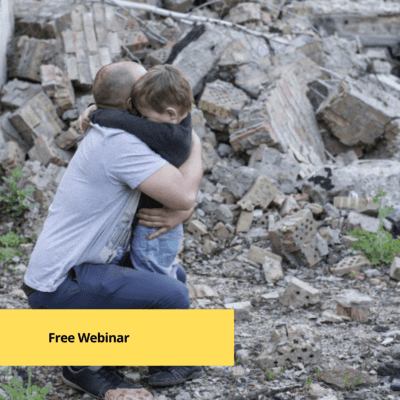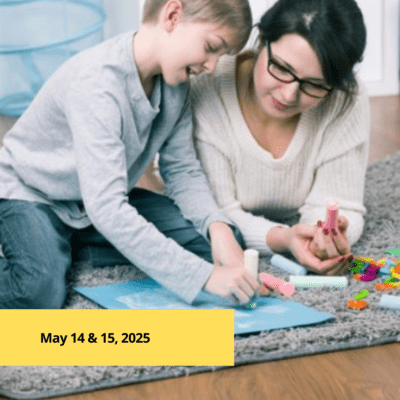Description
Collaborative Problem Solving is an evidence-based approach to understanding and helping children and adolescents with a wide range of social, emotional, and behavioural challenges.
Participants learn to advance their skills in applying the model through a combination of didactic lectures, role-playing, videotape examples, case presentations, and breakout groups with topics of specific interest to clinicians and educators. Participants receive personal attention and individualized feedback during breakout sessions from Think:Kids trainers while also benefiting from opportunities for networking.
Participants must attend all days to be considered for certification. Completion of the training is also a requirement of the professional certification program.
Additional Topics Include:
- Strategies for when a child refuses or has difficulty expressing his/her concerns.
- Dealing with common resistances to the approach.
- Troubleshooting other barriers to implementation in systems.
- Integrating with other models (i.e. Positive Behavioural Supports).
- Implementation in groups such as classrooms and transforming system-wide disciplinary policies.
Learning Outcomes
- Gain in-depth exposure to both the assessment and intervention components.
- Practice drilling down to identify specific problems to be solved.
- Practice identifying the specific cognitive skill deficits contributing to challenging behaviour.
- Learn how to solve problems and train skills using the collaborative problem-solving process.
- Practice indirect skills training with personalized feedback from trainers.
- Develop the skills for troubleshooting Plan B.
Who Should Attend
This course is suitable for mental health front-line staff, clinicians and educators interested in becoming proficient in Collaborative Problem Solving.
Course Dates & Format
There are no scheduled dates for this course at this time, however in-service is available.
This is a 14-hour training. This course is delivered virtually over 4 half days. Attendance is required each day.
Instructors:
Michael Hone
Since 1988, Michael Hone has worked in a variety of settings including child welfare, youth justice, education and child and youth mental health. Currently he is the Executive Director of a Children’s Mental Health Centre in Ottawa, Canada. Michael is one of 2 Master trainers in Canada for Collaborative Problem Solving and is involved with the Advisory Council of Think:Kids at Massachusetts General Hospital. Michael has been committed to implementing the Collaborative Problem Solving (CPS) approach across Ontario, and to date has trained approximately 8,000 people in Ontario.
Natasha Tatartcheff-Quesnel
Natasha has worked in child and adolescent services since 1991 in a variety of settings including residential services, secure treatment, youth justice, education, substance abuse, child and youth mental health, as well as in the private sector. She is a bilingual Certified Master Trainer and Consultant for Think:Kids and completed her fellowship for her Master’s in Social Work at Think:Kids in the department of Psychiatry at Massachusetts General Hospital. She is committed to implementing the CPS approach in Canada and the United States and has trained and provided implementation support to numerous sites. She has also reviewed child and youth mental health systems internationally using the SOCPR and presented on the topic at numerous conferences.
Training Fee
Group Registration: Save 20% off individual fees with a group registration of 4 or more participants. Download the group registration form HERE.
Continuing Education Information
Continuing education credits are offered at no extra cost through Think:Kids, Massachusetts General Hospital Department of Psychiatry.
Licensing boards and professional organizations will grant Continuing Education credits for attendance at their discretion when participants submit the course outline and certificate.
In-Service
This is available as an in-person or virtual in-service training and customized to suit your needs.



